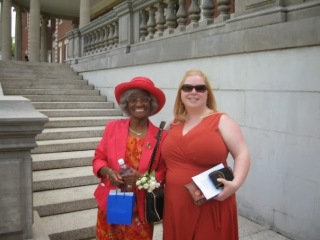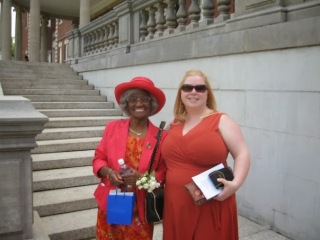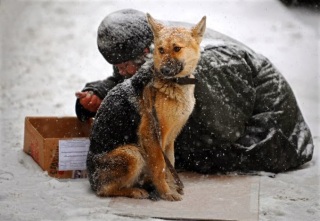You can tell a lot about a person by how they treat the disenfranchised. My grandmother used to start collecting socks, hats, and gloves in October and would store them until Christmas. During the week before Christmas she would cook a huge feast with all the traditional dishes and make individual meals for the homeless in her city. Christmas day she would pack it all in her car and my grandparents would go FIND the homeless and celebrate Christmas with them.
Like many of us, she understood the love of serving others. Many of us think of our jobs as pre-hospital providers as technical and high minded, but the foundation of excellent care is service. We can provide all the latest techniques and gadgets, but if the practitioner is not in tune with the patient’s emotional well being the whole patient has not been treated.
So what happens to our “service” and compassion when we are called for the town drunk for the fifth time today or the homeless guy in layers and layers of clothes and excrement? How do we treat them? Honestly. How do we TREAT them?
Sometimes our role as providers is defined by the technical skills we possess, but not the social interventions that our patients might not have access to or may not know exist because they have been ignored for so long. It is our responsibility as providers to serve EVERYONE in our community, especially the unseen. Experienced providers should also note that the “new guy” is learning what is acceptable from us. If you treat people badly, that makes it “okay” for others to continue that cycle of neglect or abuse.
This change in attitude starts with a change in our vocabulary. Like all our other patients, call them Mr or Mrs “Smith” not “Stinky Pete” or whatever nickname your service likes to use. While we are learning to speak to patients appropriately, we should not be doing all the talking. Listen to your patient. This has obvious technical elements such as obtaining an accurate history or acquiring one if your patient is a poor historian leading to better treatment. When there are no emergent matters, simply listening to your patient’s stories from their youth, military service or about their grandchildren relaxes the patient and provides a bond of trust. In my experience, I am the one who received the greatest benefit by hearing their tales and viewing history through their eyes. Be the person they remember because you showed them the greatest kindness by doing the unexpected, being nice.
Mark Bezos’ TED Talk on Heroism
Why do people become homeless or even stay homeless? Some of the usual factors that I discovered while talking with patients that are homeless include mental health issues or addiction problems. These are usually coupled with other chronic illnesses that are not addressed due to poor self-care or lack of access to regular healthcare. This is a multifaceted problem that even the brightest minds have not been able to fix and honestly, some people choose to continue to be homeless. We are not going to change it in 20 minutes to an hour. We can however improve their existence as humans, by sharing our humanity. That means: be nice and don’t dismiss them. Listen to what they have to say about how they got to this point and what their complaint is today. If someone is inebriated, their complaint might be in addition to intoxication. Complete a full assessment. This includes vital signs and exposing affected areas that need to be assessed based on the current complaint. I know, “That’s gross!” It is also our job to take care of all our patients, not just the ones who smell good. If we don’t fully assess the patient every time, we can miss injuries or indicators of chronic illness. The nurses and doctors at the emergency department do listen to our report and preconceived notions. If we say, “Oh, he’s just a drunk.” Chances are they are going to believe that, particularly with regulars, and let them sit and wait. If a patient is having a real emergency, that can obviously be a problem on many levels and the person who bears largest burden in that situation is the patient.
Caring for the disenfranchised and invisible members of our population should be a daily occurrence, not just a special holiday season activity. This job is not just about all the “cool” stuff we get to use or skills we get to practice, it is largely about caring for others who don’t have anyone else to call. Maybe it’s time to think about why we put our boots on every day.
Merry Christmas!
I would like to thank two special individuals in particular for their inspiration/ assistance with this post. A huge Thank you to Andrew Caruso and Larry Torrey for showing and reminding me that we are all human.



Leave a comment